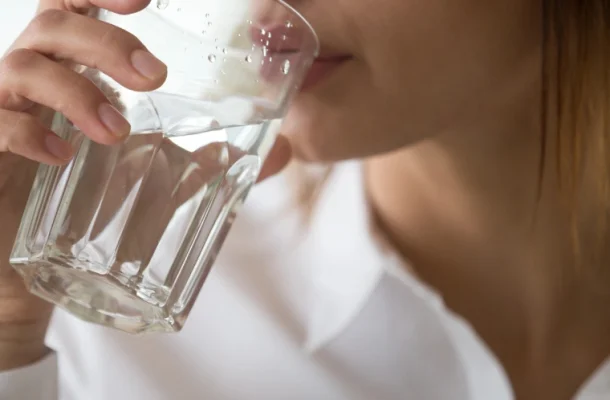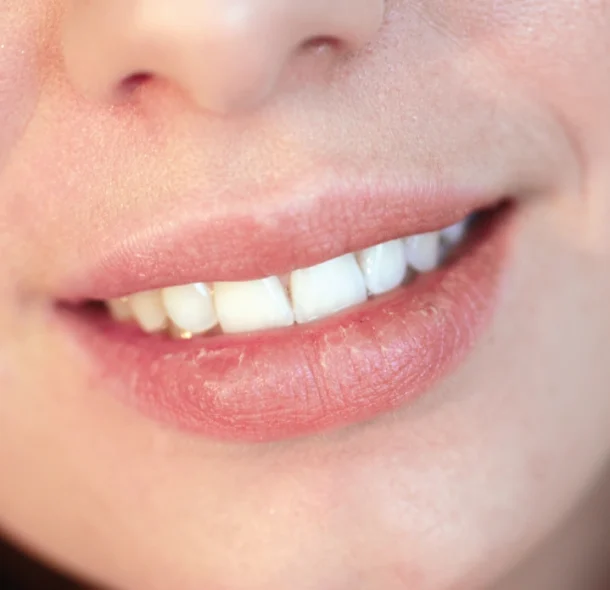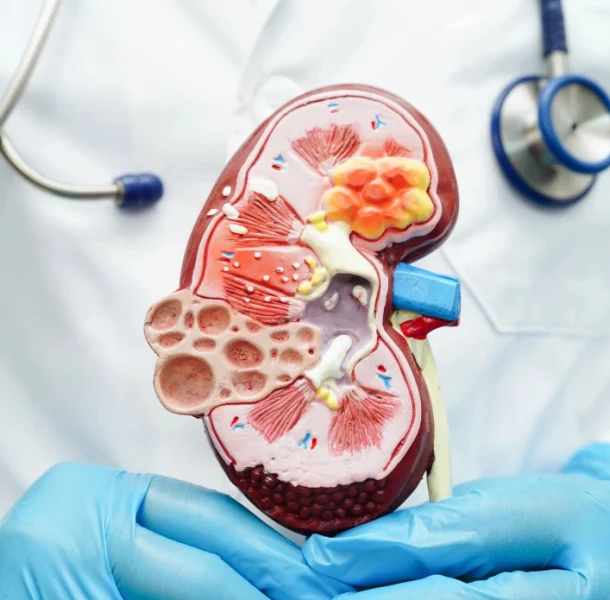Dehydration
- Fluids Are Essential – Don’t Let Dehydration Get in the Way of Recovery!
- Dehydration Doesn’t Have to Win – Let’s Fight It Together!
- Hydration Is Key – Stay Replenished with NextGen’s Care!
- Combat Fluid Loss – Rehydrate Quickly and Effectively!

Fast and Effective Rehydration
Receive immediate treatment with IV fluids to rehydrate your body quickly, ensuring a smooth recovery process
Comprehensive Gastrointestinal Care
We address both dehydration and the root gastrointestinal issues to provide complete care for your recovery.
Convenient Walk-In Service
No appointment needed! Walk in for prompt dehydration treatment and immediate relief from your symptoms.
Personalized Treatment Plans
Get a customized hydration plan designed specifically to meet your symptoms and individual recovery needs.

Symptoms, Treatment, and How NextGen Walk-in Clinic Can Help
Dehydration is a condition in which the body does not have enough water and electrolytes to carry out its normal functions. Water plays a crucial role in regulating temperature, transporting nutrients, and removing waste from the body. Without adequate hydration, the body can experience a variety of problems ranging from mild discomfort to serious health complications.
Why Choose NextGen Walk-in Clinic & Urgent Care for Dehydration Treatment and Care
When it comes to dehydration, timely and effective treatment is crucial for recovery. At NextGen Walk-in Clinic & Urgent Care, we specialize in providing immediate and comprehensive care for dehydration, ensuring you receive the hydration and medical support needed to feel better quickly.
Here’s why you should choose NextGen Walk-in Clinic & Urgent Care for your dehydration treatment:
We understand that dehydration can cause discomfort and serious health concerns. At NextGen, you don’t need an appointment – simply walk in and be seen by one of our experienced healthcare providers right away. Our walk-in service ensures you don’t have to wait for long hours in a crowded emergency room or deal with appointment delays.
For moderate to severe dehydration, we offer IV hydration therapy to quickly replenish lost fluids and electrolytes. IV therapy is one of the most effective ways to restore hydration, especially if you're unable to keep fluids down due to vomiting or diarrhea. Our expert team ensures the proper administration of fluids to prevent further complications and help you feel better faster.
At NextGen, we don’t offer one-size-fits-all solutions. We take the time to understand your unique situation and customize your care plan based on your symptoms and medical history. Whether your dehydration is due to a gastrointestinal infection, illness, or other causes, we provide tailored treatments to address your specific needs.
Dehydration can be a symptom of underlying issues, such as gastrointestinal infections or chronic conditions. NextGen Walk-in Clinic & Urgent Care offers diagnostic tests to identify the root cause of your dehydration, such as bacterial, viral, or parasitic infections. With accurate diagnoses, we can recommend the most effective treatments to address both the dehydration and any underlying health problems.
Our team of trained professionals is equipped with the knowledge and skills to handle a wide range of dehydration cases. From mild to severe symptoms, our healthcare providers ensure that your treatment is handled efficiently and safely. You can trust NextGen to provide expert care, helping you recover as quickly as possible.
Dehydration can sometimes require ongoing care to ensure full recovery. If necessary, NextGen Walk-in Clinic & Urgent Care offers follow-up visits to monitor your hydration status and overall health. We’re committed to ensuring you stay on the path to recovery, and we’re here for any additional support you may need.
When you’re dealing with dehydration, don’t wait for symptoms to worsen. NextGen Walk-in Clinic & Urgent Care offers fast, reliable, and personalized care to help you get the hydration and treatment you need to feel better. Walk in today for immediate relief!


Connection to Gastrointestinal Complaints
Dehydration often occurs as a result of gastrointestinal issues such as vomiting, diarrhea, and fever. These conditions lead to significant fluid and electrolyte loss, making it difficult for the body to maintain balance. When the digestive system is disrupted, the body may lose essential fluids quickly, leading to dehydration. As a result, individuals suffering from gastrointestinal complaints are at a higher risk of becoming dehydrated if their symptoms are left untreated.
Causes of Dehydration:
Vomiting and diarrhea are some of the most common causes of dehydration. Both conditions cause the body to lose large amounts of water and salts. When diarrhea occurs, the body’s digestive system expels water quickly, leaving little behind for the body to absorb. Similarly, vomiting forces the stomach to expel fluids, and when frequent, can leave the body unable to replenish what’s lost.
Illnesses that cause fever often increase body temperature, which in turn can lead to excessive sweating. This sweat loss depletes the body’s water and electrolyte levels, contributing to dehydration. Additionally, the fever itself increases fluid demand as the body works to regulate temperature. Without adequate hydration, the body’s ability to fight illness and recover can be severely compromised.
Dehydration can also occur if an individual doesn’t drink enough fluids to compensate for the amount lost. During illness, when people may have reduced appetite or increased symptoms like nausea, they may be less likely to drink fluids, leading to dehydration. This is especially common in younger children and the elderly, who may not have a strong enough thirst drive to encourage fluid intake.
Understanding the connection between dehydration and gastrointestinal complaints is key to preventing severe health complications. If dehydration is not addressed, it can lead to further issues such as kidney damage, electrolyte imbalances, and overall poor health. It’s essential to replenish lost fluids as soon as possible when experiencing gastrointestinal symptoms.
How Dehydration Affects the Body
Water is essential for maintaining proper cellular function. It helps cells absorb nutrients, eliminate waste, and maintain their shape and structure. When the body becomes dehydrated, these vital processes are hindered, leading to decreased cellular efficiency and function. This can affect various systems in the body, including digestion, energy production, and metabolism.
The kidneys play a crucial role in filtering waste from the blood and regulating fluid balance in the body. Without enough water, the kidneys struggle to function efficiently. Chronic dehydration can lead to kidney stones, urinary tract infections (UTIs), or even kidney damage over time. The reduced ability of the kidneys to filter waste properly can result in toxic buildup, leading to further complications.
Dehydration reduces the volume of blood in the body, which in turn lowers blood pressure and can compromise circulation. This decrease in blood flow means that oxygen and nutrients may not be effectively transported to the organs and tissues that need them. The body may respond with dizziness, fatigue, and in severe cases, fainting, as the heart works harder to pump the reduced blood volume.
Electrolytes, such as sodium, potassium, and chloride, are crucial for nerve function, muscle contraction, and maintaining fluid balance in the body. Dehydration causes the loss of these vital electrolytes through sweating, vomiting, diarrhea, or insufficient fluid intake. An imbalance in electrolytes can lead to serious issues like muscle cramps, weakness, confusion, and even life-threatening heart arrhythmias, affecting the body’s overall stability.
In conclusion, dehydration is more than just a lack of water—it can severely impact various body systems, leading to complications like kidney damage, poor circulation, and electrolyte imbalances. It’s essential to stay hydrated and address dehydration promptly to avoid these potential health risks.


Recognizing the Symptoms of Dehydration
Mild Dehydration Symptoms:
• Dry Mouth and Throat: A feeling of dryness or stickiness in the mouth and throat, often accompanied by the need to drink water.
• Thirst: An increased desire for water is one of the first signs that the body is becoming dehydrated.
• Decreased Urination (Dark-Colored Urine): When dehydrated, the body produces less urine, and the urine may appear darker in color due to concentrated waste.
• Fatigue or Weakness: Dehydration can cause feelings of tiredness or reduced energy levels as the body struggles to maintain its normal functions.
• Dizziness or Lightheadedness: As fluid levels drop, the body’s ability to regulate blood pressure is affected, leading to dizziness or lightheadedness, especially when standing up.
• Dry, Cool Skin: Skin may feel dry and cooler than usual as the body reduces perspiration to conserve water.
• Very Dry Skin and Mouth: The skin and mouth become increasingly dry, and the sensation of thirst becomes stronger.
• Sunken Eyes and Cheeks: As dehydration worsens, the eyes may appear sunken, and the cheeks may look hollowed out due to fluid loss.
• Decreased Sweating: The body starts conserving water by reducing the amount of sweat produced, which can lead to overheating.
• Low Blood Pressure: Dehydration can lower blood pressure, resulting in dizziness or fainting when standing up quickly.
• Rapid Heartbeat or Breathing: To compensate for the lack of fluid, the body increases the heart rate and breathing to circulate the limited blood supply more effectively.
• Extremely Dry, Cracked Lips and Tongue: The lips and tongue may become severely dry, cracked, and possibly painful due to the extreme lack of moisture.
• Little or No Urine Production: One of the most severe signs of dehydration is little to no urine production, signaling that the body is conserving every drop of fluid.
• Sunken Eyes and Extreme Tiredness: The eyes may be deeply sunken, and extreme tiredness can set in, making it difficult to function normally.
• Severe Confusion, Irritability, or Delirium: As dehydration reaches critical levels, mental function is affected, leading to confusion, irritability, or delirium.
• Shock: In extreme cases, dehydration can lead to shock, which is characterized by cold hands and feet, a very rapid heartbeat, and rapid breathing, all of which require immediate medical attention.
Recognizing these symptoms is crucial for preventing further complications of dehydration. It’s important to act quickly, rehydrate, and seek medical care if you or someone you know experiences moderate or severe symptoms. Early intervention can help prevent more serious consequences and restore hydration before the situation worsens.

Treatment for Dehydration
Home-Based Treatment:
- Oral Rehydration Solutions (ORS): One of the best ways to treat dehydration at home is using oral rehydration solutions like Pedialyte or homemade solutions. These contain a balance of water, salt, and sugar, which help replenish lost fluids and electrolytes. ORS is designed to restore hydration more effectively than water alone.
- Water and Clear Liquids: Gradually sipping water, broths, or herbal teas can help you stay hydrated. Avoid large gulps of water all at once, as it might upset the stomach. These clear liquids are gentle on the digestive system and help rehydrate the body over time.
- Eat Hydrating Foods: Fruits and vegetables with high water content, such as watermelon, cucumbers, and oranges, are excellent for boosting hydration. These foods also provide vital vitamins and nutrients that the body needs for recovery.
• Intravenous (IV) Fluids: For moderate to severe dehydration, intravenous (IV) fluids may be required to quickly replenish lost fluids and electrolytes. This treatment is typically administered in a healthcare setting, such as a hospital or urgent care clinic, where professionals can monitor your condition.
• Types of IV Fluids: The most commonly used IV fluids for dehydration are Normal Saline (0.9% sodium chloride) and Lactated Ringer’s solution. These fluids help restore the body's water and electrolyte balance effectively.
• Electrolyte Replenishment: If the body has lost a significant amount of electrolytes, such as potassium or sodium, specific electrolyte replacement therapy may be required. This can be done through IV fluids or oral supplements, depending on the severity of the electrolyte imbalance.
• Medications: In some cases, anti-nausea or anti-diarrheal medications may be prescribed to help control vomiting or diarrhea. This can prevent further fluid loss and promote better absorption of fluids and nutrients.
Dehydration Prevention
One of the best ways to prevent dehydration is to drink water consistently throughout the day. Keep water easily accessible, especially when you are sick, or have gastrointestinal symptoms like vomiting or diarrhea. Hydrating frequently is key to maintaining a proper fluid balance.
Drinking sports beverages or oral rehydration solutions can help maintain your electrolyte levels. These drinks replace the lost sodium, potassium, and other electrolytes, ensuring proper cell and muscle function.
Both caffeine and alcohol can exacerbate dehydration because they promote urination. If you're dehydrated or recovering from an illness, limit your intake of caffeinated or alcoholic beverages to prevent worsening dehydration.
Prevent foodborne illnesses that lead to dehydration by practicing proper food hygiene. Wash your hands thoroughly before handling food, ensure food is cooked properly, and avoid consuming unclean water. By preventing gastrointestinal illnesses like food poisoning, you reduce the risk of dehydration caused by vomiting or diarrhea.
By following these treatment and prevention strategies, you can effectively manage dehydration, restore your hydration levels, and reduce the risk of further health complications. If symptoms of dehydration persist or worsen, seek medical help promptly to ensure proper care.

How NextGen Walk-in Clinic & Urgent Care Can Help
Immediate Assessment
At NextGen Walk-in Clinic & Urgent Care, we understand how quickly dehydration can develop, especially when caused by gastrointestinal issues like diarrhea, vomiting, or fever. Our experienced healthcare professionals offer rapid assessments to determine the severity of dehydration and its underlying causes, ensuring that you receive timely and effective care.
IV Hydration Therapy
For patients experiencing moderate to severe dehydration, NextGen offers IV hydration therapy. This method provides fluids and electrolytes directly into the bloodstream, quickly restoring hydration levels and helping prevent further complications. IV therapy is an efficient and effective solution for rehydrating patients who need immediate relief from dehydration.
Diagnosis of Underlying Causes
Dehydration can often be a symptom of an underlying issue, such as a gastrointestinal infection. Whether the cause is bacterial, viral, or parasitic, our clinic provides accurate diagnosis and treatment. By addressing both the dehydration and its root cause, we ensure comprehensive care that promotes faster recovery.
Personalized Care
At NextGen, we believe in personalized care tailored to each patient’s needs. Our medical team develops individualized hydration and treatment plans, taking into account the severity of dehydration and any related gastrointestinal issues. This approach helps ensure that each patient gets the most appropriate and effective care for their condition.
Convenient Walk-In Service
No appointment is needed at NextGen Walk-in Clinic & Urgent Care. We offer convenient walk-in services for patients in need of immediate treatment. Whether you’re dealing with dehydration due to illness or another condition, our team is ready to provide fast, reliable care without the wait.
Follow-Up Care
If necessary, NextGen offers follow-up appointments to monitor your recovery progress. We’ll ensure that your hydration levels are properly maintained, electrolytes are balanced, and that any underlying conditions are addressed. Our goal is to provide continuous support until you’re back to full health.

Complications of Untreated Dehydration
- Organ Damage: If dehydration goes untreated, it can cause severe complications, such as kidney damage, heart problems, and in extreme cases, shock. The body relies on adequate hydration for proper organ function, and prolonged dehydration can lead to irreversible damage.
- Severe Electrolyte Imbalance: Dehydration can lead to serious electrolyte imbalances, affecting vital body systems. Imbalances in electrolytes like potassium, sodium, and calcium can disrupt muscle function, heart rhythm, and nerve signaling, potentially causing life-threatening conditions.
- Delayed Recovery: When dehydration is not properly addressed, recovery from illnesses like gastrointestinal infections can be significantly delayed. Inadequate rehydration prolongs symptoms, leading to a longer recovery time and increased discomfort. Prompt treatment is essential to speed up healing and avoid further health complications.
At NextGen Walk-in Clinic & Urgent Care, we are committed to providing the necessary treatments to prevent these complications and support your rapid recovery. Whether through immediate hydration therapy, diagnosis, or follow-up care, we are here to ensure you get the care you need to feel better faster.
When to Seek Emergency Medical Care
- Severe Symptoms: If you experience severe symptoms like confusion, extreme fatigue, or a very low urine output, it's crucial to seek immediate medical attention. These could be signs of severe dehydration or other complications, and prompt intervention is necessary to prevent further health risks. It's always better to be cautious and seek care sooner rather than later.
- Inability to Keep Fluids Down: If you are unable to retain fluids due to persistent vomiting or diarrhea, this is a serious concern. When fluids can't stay down, dehydration worsens rapidly. In such cases, it’s important to get medical help immediately to avoid more severe dehydration and to receive fluids via intravenous (IV) therapy to restore hydration levels.
- Children and Elderly: Young children and elderly individuals are particularly vulnerable to dehydration. Their bodies lose fluids more quickly and are less efficient at maintaining hydration, which puts them at higher risk for complications. If a child or elderly person shows signs of dehydration, such as dry mouth, lethargy, or decreased urination, seek immediate medical care.

Customer Reviews for NextGen Walk-in Clinic & Urgent Care

Jonathon C.
Lorem ipsum dolor sit amet, consectetur adipiscing elit. Praesent tincidunt tortor at tempor auctor. Fusce venenatis euismod eros eget ullamcorper. Aliquam fermentum dignissim metus vel maximus. Integer quis tempor sem. Mauris placerat fermentum ornare. Nam vestibulum hendrerit purus eget auctor. Aliquam erat volutpat.

Jayne H.
Lorem ipsum dolor sit amet, consectetur adipiscing elit. Praesent tincidunt tortor at tempor auctor. Fusce venenatis euismod eros eget ullamcorper. Aliquam fermentum dignissim metus vel maximus. Integer quis tempor sem. Mauris placerat fermentum ornare. Nam vestibulum hendrerit purus eget auctor. Aliquam erat volutpat.

Raymond M.
Lorem ipsum dolor sit amet, consectetur adipiscing elit. Praesent tincidunt tortor at tempor auctor. Fusce venenatis euismod eros eget ullamcorper. Aliquam fermentum dignissim metus vel maximus. Integer quis tempor sem. Mauris placerat fermentum ornare. Nam vestibulum hendrerit purus eget auctor. Aliquam erat volutpat.
Frequently Asked Questions (FAQs) About Dehydration
Lorem Ipsum is simply dummy text of the printing and typesetting industry. Lorem Ipsum has been the industry's standard dummy text ever since the 1500s, when an unknown printer took a galley of type and scrambled it to make a type specimen book. It has survived not only five centuries, but also the leap into electronic typesetting, remaining essentially unchanged. It was popularised in the 1960s with the release of Letraset sheets containing Lorem Ipsum passages, and more recently with desktop publishing software like Aldus PageMaker including versions of Lorem Ipsum.
Lorem Ipsum is simply dummy text of the printing and typesetting industry. Lorem Ipsum has been the industry's standard dummy text ever since the 1500s, when an unknown printer took a galley of type and scrambled it to make a type specimen book. It has survived not only five centuries, but also the leap into electronic typesetting, remaining essentially unchanged. It was popularised in the 1960s with the release of Letraset sheets containing Lorem Ipsum passages, and more recently with desktop publishing software like Aldus PageMaker including versions of Lorem Ipsum.
Lorem Ipsum is simply dummy text of the printing and typesetting industry. Lorem Ipsum has been the industry's standard dummy text ever since the 1500s, when an unknown printer took a galley of type and scrambled it to make a type specimen book. It has survived not only five centuries, but also the leap into electronic typesetting, remaining essentially unchanged. It was popularised in the 1960s with the release of Letraset sheets containing Lorem Ipsum passages, and more recently with desktop publishing software like Aldus PageMaker including versions of Lorem Ipsum.
Lorem Ipsum is simply dummy text of the printing and typesetting industry. Lorem Ipsum has been the industry's standard dummy text ever since the 1500s, when an unknown printer took a galley of type and scrambled it to make a type specimen book. It has survived not only five centuries, but also the leap into electronic typesetting, remaining essentially unchanged. It was popularised in the 1960s with the release of Letraset sheets containing Lorem Ipsum passages, and more recently with desktop publishing software like Aldus PageMaker including versions of Lorem Ipsum.
Lorem Ipsum is simply dummy text of the printing and typesetting industry. Lorem Ipsum has been the industry's standard dummy text ever since the 1500s, when an unknown printer took a galley of type and scrambled it to make a type specimen book. It has survived not only five centuries, but also the leap into electronic typesetting, remaining essentially unchanged. It was popularised in the 1960s with the release of Letraset sheets containing Lorem Ipsum passages, and more recently with desktop publishing software like Aldus PageMaker including versions of Lorem Ipsum.
Lorem Ipsum is simply dummy text of the printing and typesetting industry. Lorem Ipsum has been the industry's standard dummy text ever since the 1500s, when an unknown printer took a galley of type and scrambled it to make a type specimen book. It has survived not only five centuries, but also the leap into electronic typesetting, remaining essentially unchanged. It was popularised in the 1960s with the release of Letraset sheets containing Lorem Ipsum passages, and more recently with desktop publishing software like Aldus PageMaker including versions of Lorem Ipsum.
Lorem Ipsum is simply dummy text of the printing and typesetting industry. Lorem Ipsum has been the industry's standard dummy text ever since the 1500s, when an unknown printer took a galley of type and scrambled it to make a type specimen book. It has survived not only five centuries, but also the leap into electronic typesetting, remaining essentially unchanged. It was popularised in the 1960s with the release of Letraset sheets containing Lorem Ipsum passages, and more recently with desktop publishing software like Aldus PageMaker including versions of Lorem Ipsum.
Lorem Ipsum is simply dummy text of the printing and typesetting industry. Lorem Ipsum has been the industry's standard dummy text ever since the 1500s, when an unknown printer took a galley of type and scrambled it to make a type specimen book. It has survived not only five centuries, but also the leap into electronic typesetting, remaining essentially unchanged. It was popularised in the 1960s with the release of Letraset sheets containing Lorem Ipsum passages, and more recently with desktop publishing software like Aldus PageMaker including versions of Lorem Ipsum.
Final Thoughts on Dehydration Treatment and Care
Dehydration is a common but serious condition, especially when it results from gastrointestinal issues like vomiting or diarrhea. If left untreated, dehydration can lead to significant health complications, so prompt rehydration and treatment are essential to avoid further risks.
At NextGen Walk-in Clinic & Urgent Care, we offer fast and efficient care to treat dehydration, including IV hydration therapy and personalized treatment plans tailored to your specific needs. Our goal is to restore your fluid and electrolyte balance as quickly as possible, ensuring your body recovers effectively.
By recognizing the symptoms of dehydration early and seeking care promptly, you can recover quickly and safely, minimizing the risk of long-term health complications. Whether it’s for a mild case or more severe dehydration, our team is here to help you get back on track to full health.

